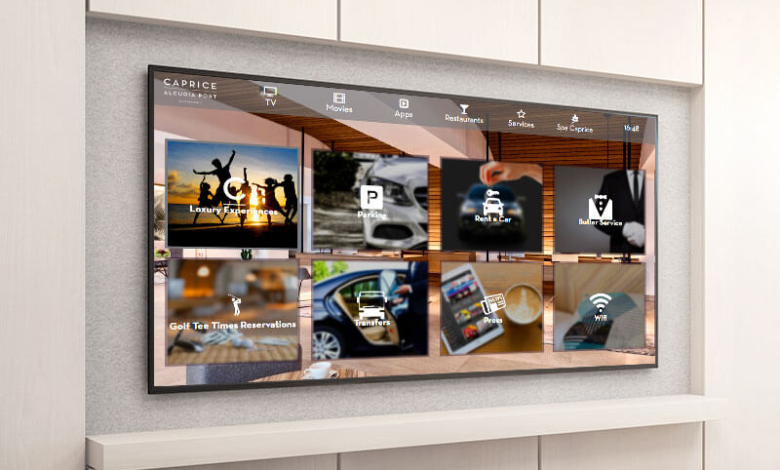Enhancing Guest Experience with Advanced Hospitality TV Features

The hospitality industry is a very competitive business sector, andf hotels are increasingly adopting advanced technologies to enhance guest satisfaction and streamline operations.
Modern hospitality TVs, equipped with features like casting and screen mirroring, customized welcome messages, integration with hotel systems, and energy efficiency, play a pivotal role in this transformation. This article explores how these features contribute to creating a more personalized and efficient guest experience.
Casting and Screen Mirroring
One of the most sought-after features in hospitality TVs today is the ability to cast and mirror screens from personal devices. Hotel casting systems technology allows guests to project content from their smartphones, tablets, or laptops directly onto the larger TV screen in their room.
Whether it’s streaming a favorite show from Netflix, presenting a business slideshow, or sharing photos from their trip, guests can enjoy a seamless and personalized viewing experience. This feature not only caters to the desire for continuous connectivity but also adds a layer of convenience, making guests feel more at home during their stay.
Customized Welcome Messages and Content
Personalization is key in making guests feel valued and enhancing their overall stay. Many hospitality TVs now offer the capability to display customized welcome messages as soon as guests enter their rooms.
These messages might include the guest’s name, relevant details about their stay, and personalized content such as news, weather updates, or targeted advertisements based on the guest’s preferences.
Furthermore, hotels can use this feature to promote onsite services and special offers, increasing revenue opportunities and improving guest engagement.
Integration with Hotel Systems
The integration of hospitality TVs with hotel management systems marks a significant advancement in operational efficiency and guest service.
These TVs connect directly with the property’s Property Management System (PMS), allowing guests to access a variety of services from their screens. For example, guests can check their account balance, make reservations at the hotel restaurant, book spa services, or even check out directly from their TV.
This integration reduces staff workload and enhances the guest experience by providing convenience and reducing the need for direct interaction, which is particularly valued in today’s contactless service environment.
Energy Efficiency
Sustainability is increasingly becoming a priority in the hospitality industry, and the latest hospitality TVs reflect this shift. These TVs are designed with energy-saving features such as LED backlights, automatic brightness control, and motion sensors that turn off the TV when no activity is detected in the room.
Some models also include settings that minimize power consumption during low-use periods, which not only helps hotels reduce their energy costs but also appeals to environmentally conscious guests. By investing in energy-efficient technology, hotels can significantly lower their carbon footprint while promoting a greener, more sustainable operation.
Conclusion
The evolution of hospitality televisions equipped with features like casting and screen mirroring, customized welcome messages, integration with hotel systems, and energy efficiency is reshaping the hotel guest experience overall.
These advancements not only meet the high expectations of modern travelers for personalized, seamless, and eco-friendly accommodations, but they also provide significant operational benefits to hotels. As hospitality technology products continue to evolve, the role of hospitality TVs in enhancing guest satisfaction and hotel management will undoubtedly expand, setting new standards in the industry.




